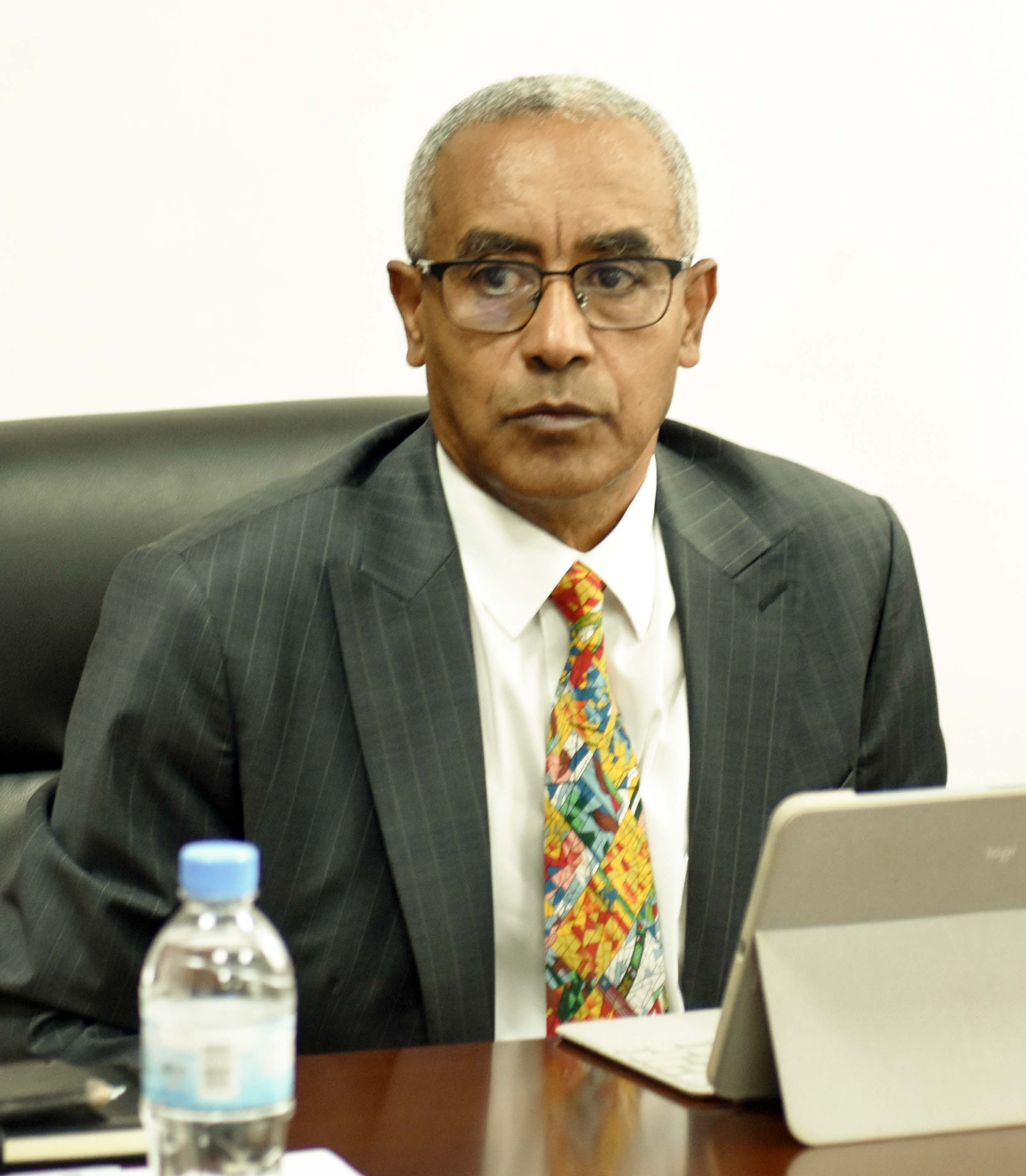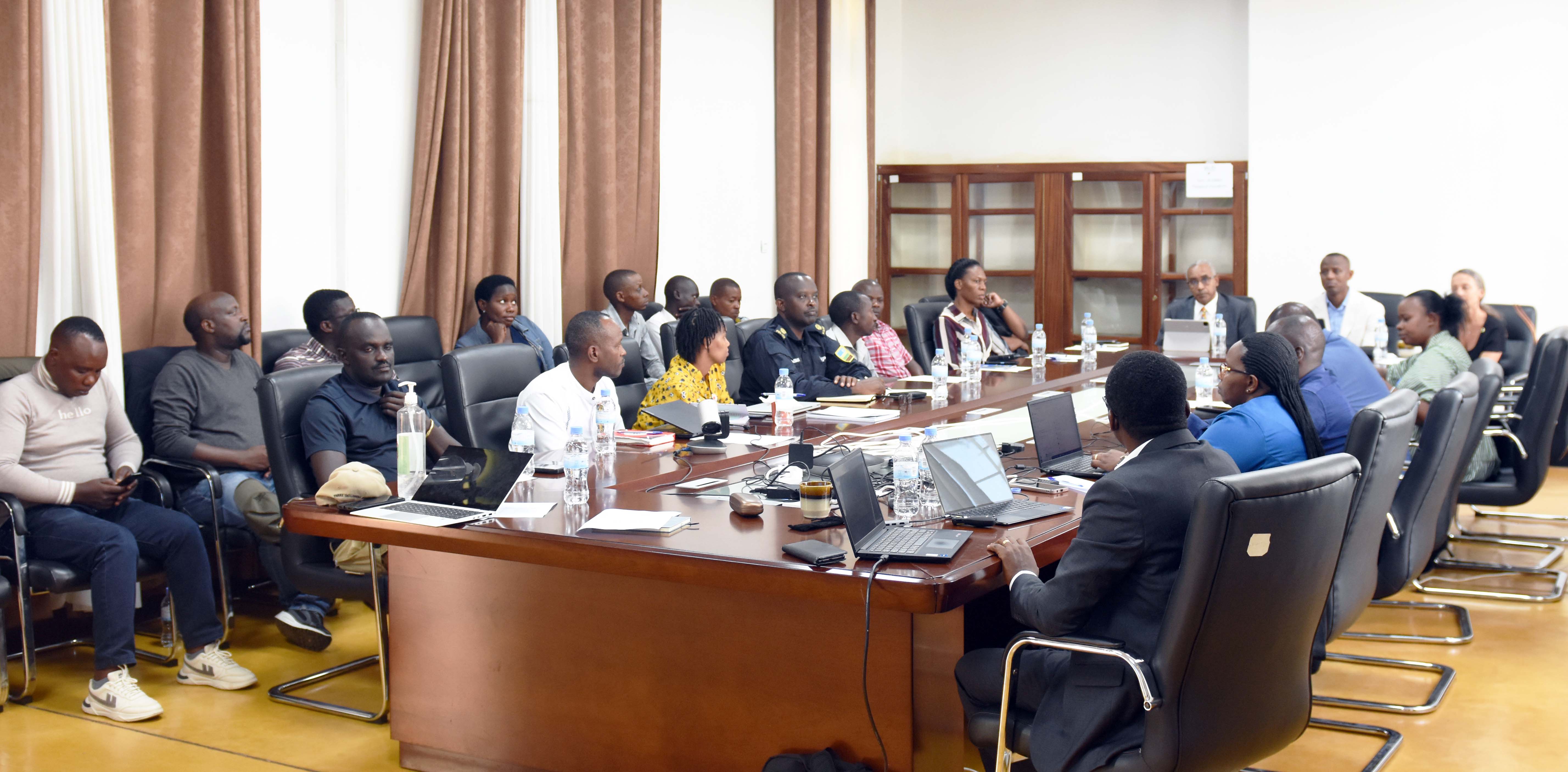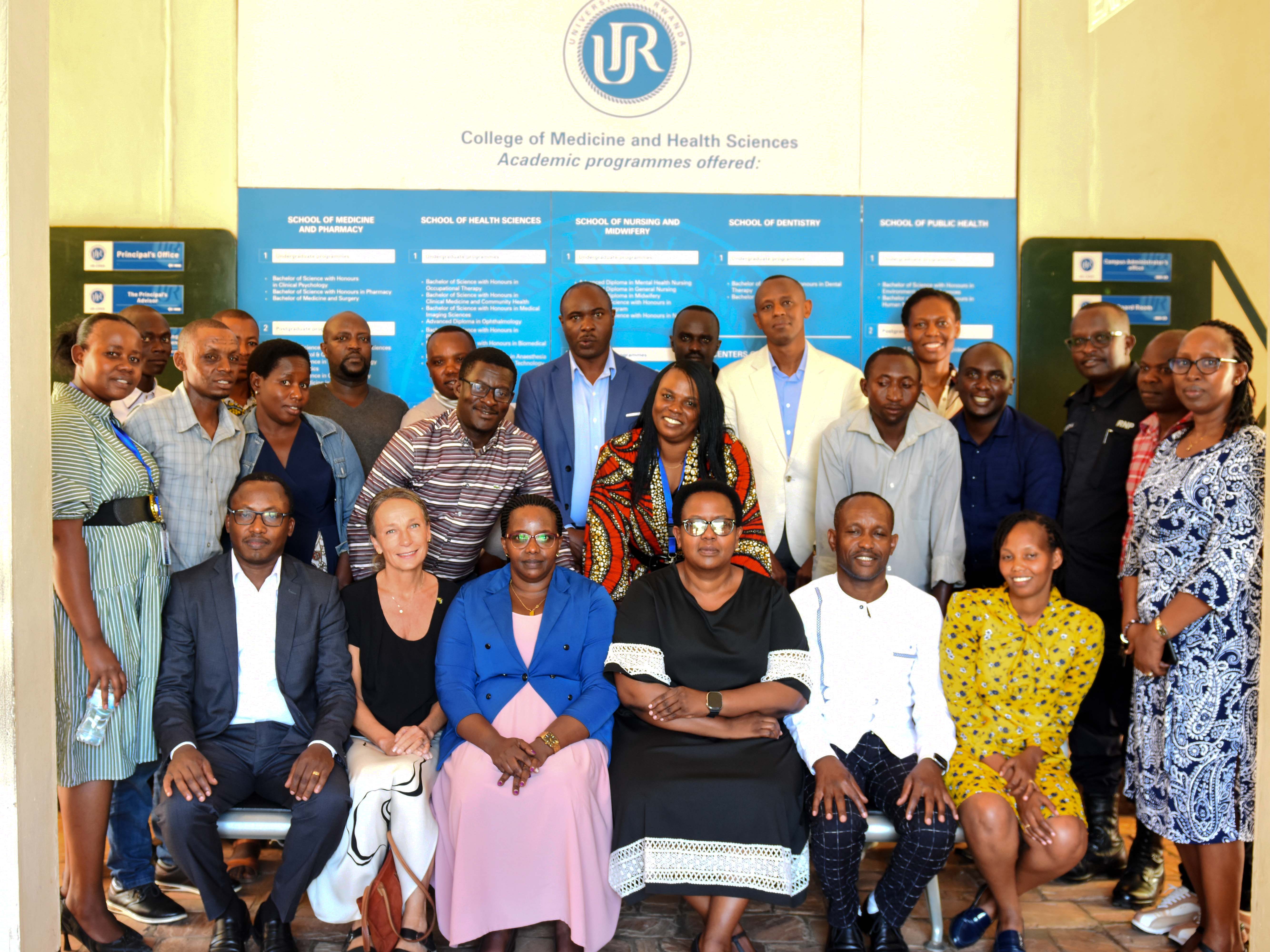A research dissemination workshop led by researchers from the College of Medicine and Health Sciences brought together business motorcyclists and bicycle cyclists. The study engaged participants from Nyagatare and Nyarugenge districts in Rwanda, focusing on their role in managing road traffic accident victims. Key areas of the research included knowledge of first aid, practical provision of first aid, self-efficacy in administering first aid, and hands-on first aid skills.
The dissemination workshop was officiated by Prof. Abraham Mitike, Principal of the College of Medicine and Health Sciences. He commended the effort, commitment, and vision that united a diverse group of stakeholders, including business motorcyclists and cyclists, who are passionate about improving road safety and emergency care in Rwanda.

Prof. Abraham Mitike while opening the dissemination workshop
“When professional emergency responders take longer to arrive, it is often business drivers ; motorcyclists, cyclists, and other transport providers ; who become first responders by default,” said Prof. Mitike while opening the research dissemination workshop on managing road traffic accident victims in Rwanda.
During the workshop, participants shared the benefits they gained from the training. They recounted instances where they were able to assist accident victims by managing bleeding, properly positioning individuals, and checking for a heartbeat ; a clear evidence of the research’s practical impact.
For instance, a motorcyclist from Nyagatare reported that he was able to administer first aid by stopping the bleeding of a victim involved in a road accident between a motorcycle and a bicycle ; thanks to the skills he gained during the training. Similarly, a cyclist from Nyarugenge shared that she witnessed an accident and was able to assess the victim’s heartbeat and properly position them using the techniques she had learned.

The workshop brought together diverse group of stakeholders from private and public Sectors, business motorcyclists and cyclists as well as researchers
Katarina Westman, Senior Research Advisor at the Embassy of Sweden to Rwanda, emphasized the importance of scaling up the research findings to ensure that more people are equipped to respond effectively in the event of an accident. She also stressed the need for regular training sessions to ensure updates and maintain consistency in first aid knowledge.
The workshop also facilitated meaningful discussions with stakeholders from both the public and private sectors. The research was funded by the UR-Sweden Program, in line with its mission to generate and promote knowledge for community transformation.
Prof. Etienne Ruvebana, Senior Research Coordinator at the UR-Sweden Program, noted that the study—Effects of First Aid Training on Knowledge, Skills, Attitude, and Self-Efficacy : Business Motorcyclists and Bicycle Cyclists in Managing Road Traffic Accident Victims in Rwanda : A Quasi-Experimental Study ; aligns with the Program’s core mission of generating knowledge that advances best practices and drives community transformation.

Participants group photo